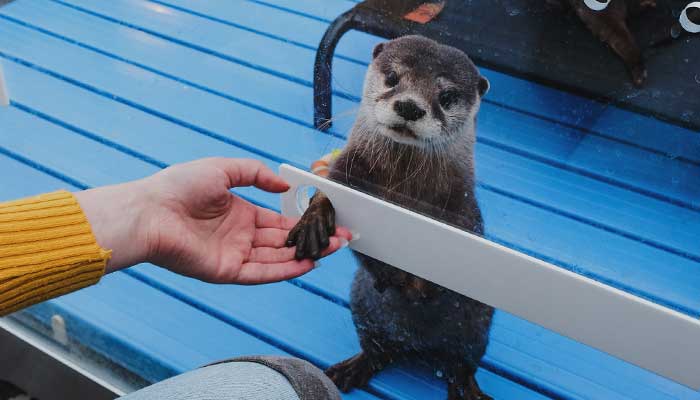
With a variety of unique cafes to cater to tourists and locals alike, Japan also has coffee-places where otters pose for selfies, becoming internet sensations.
Being awarded food, the aquatic mammals have learnt to play their cards right and act adorable when the customers approach them.
However, the surge in demand for the animal has raised major concerns among conservationists.
In a study published in the journal Conservative Science and Practice, the otters in animal cafes in Japan have been linked with wild populations in poaching hotspots in Thailand.
Researchers have compared the DNA profiles of 81 otters from zoos and animal cafes with the genetic data from wild populations in Singapore, Malaysia and Thailand.
They found the overwhelming majority of captive otters matched with two poaching sites in southern Thailand, on the Gulf of Thailand coastline and near the border with Malaysia.
Otters as extinct animals
The small-clawed animal, classified as vulnerable to extinction on the IUCN Red List, is the otter species of choice and has become a popular pet, despite its commercial trade being banned internationally in 2019.
In the wild, the otters have a key role in maintaining freshwater and mangrove swamps in Asia, hunting creatures such as crabs and molluscs.
The researchers urged people to not visit such cafes or have these animals as pets, as they have the potential to become quite violent.
In social media posts, the otters often show signs of stress and concerned eating habits.








